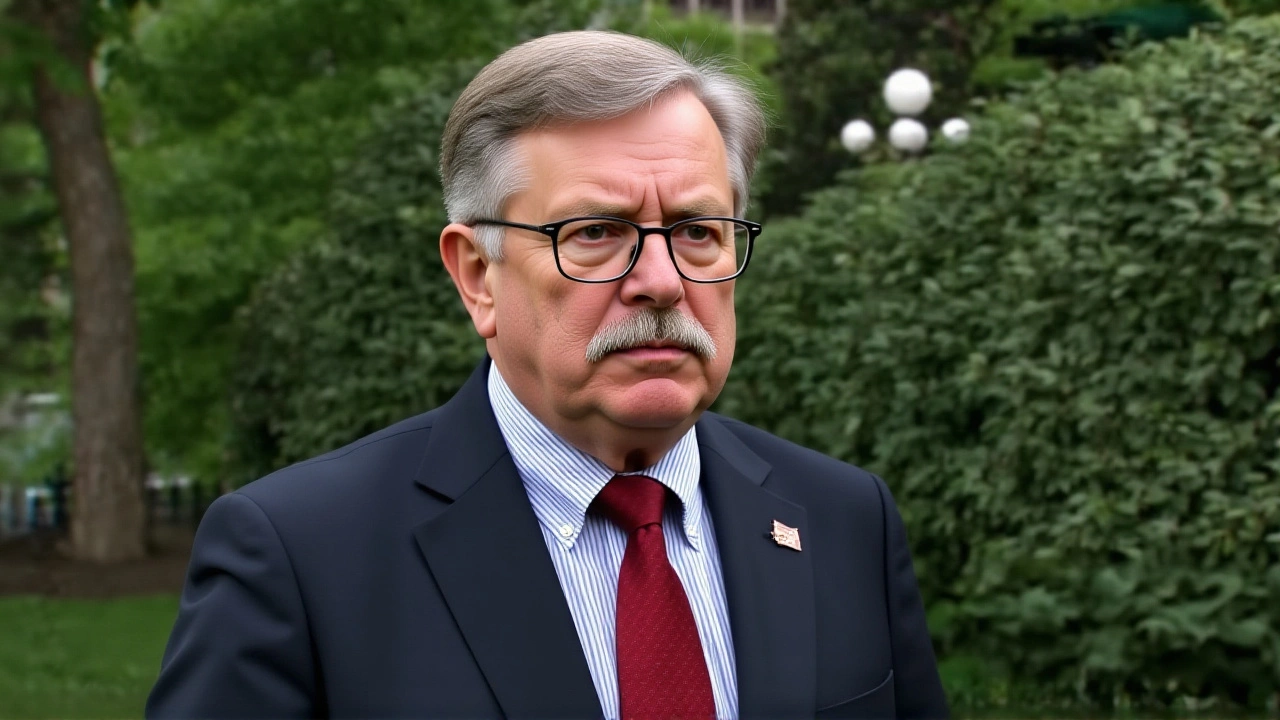When John Bolton, former White House National Security Advisor was slapped with an 18‑count federal indictment on Thursday, October 16, 2025, the legal thunderclap echoed across Washington. The grand jury in U.S. District Court for the District of Maryland accused Bolton of transmitting and retaining more than 1,000 pages of Top Secret/Sensitive Compartmented Information (SCI) spanning from April 9, 2018, to at least August 22, 2025. That’s a staggering volume of classified material, and the charges could land the 76‑year‑old former diplomat in federal prison.
But why does this matter to anyone outside the corridors of power? First, it underscores a growing pattern of high‑profile indictments targeting critics of former President Donald Trump. Second, the case raises fresh questions about how former officials safeguard—or fail to safeguard—national‑security information after they leave office. And third, the indictment arrives just weeks before Bolton’s arraignment at the E. Barrett Prettyman United States Courthouse in Washington, D.C., a venue that will likely become a media hotspot.
Background: From the Pentagon to the Courtroom
Bolton’s tenure as National Security Advisor was brief but bruising. Appointed in April 2018, he served until September 2019, guiding the Trump administration’s approach to Iran, North Korea, and the Yemen war. After leaving the White House, he turned his insider knowledge into a bestseller, The Room Where It Happened, published in September 2024. The memoir painted Trump as "unfit to be president," igniting a bitter feud that still simmers.
The FBI’s interest in Bolton began in early 2025 when agents, conducting a routine search of his Washington, D.C., office, uncovered documents labeled "confidential" that referenced weapons of mass destruction. Those papers triggered a deeper probe, eventually revealing that Bolton had been converting handwritten notes into Word files and emailing them—without any clearance—to two family members, identified in the indictment only as “Individual 1” and “Individual 2.”
What the Indictment Says
The unsealed indictment lists eight counts of "transmission of National Defense Information" and ten counts of "retention of National Defense Information." In plain English, prosecutors allege Bolton:
- Shared over 1,000 pages of Top Secret/Sensitive Compartmented Information via personal email; and
- Kept classified documents, notes, and writings in his Montgomery County, Maryland, home.
Reactions from the Political Front
President Donald Trump was asked about the indictment on the same day it was announced. He replied, "I didn't know that you told me for the first time, but I think he's, you know, a bad person. I think he's a bad guy. Yeah, he's a bad guy. It's too bad, but it's the way it goes." The comment, peppered with typical Trump bravado, underscored the personal nature of the feud.
Attorney General Pamela Bondi, who chairs the Justice Department under Trump’s second administration, has not publicly addressed the specific charges. However, insiders say Bondi’s office has been under pressure from the president to pursue cases against perceived adversaries, a claim bolstered by recent moves against former FBI Director James B. Comey and New York Attorney General Letitia James.

Legal Experts Weigh In
National security law professor Emily Carter of Georgetown University notes, "The statute of limitations for espionage‑type offenses is generous, but the real hurdle is proving intent. If Bolton genuinely believed the information was unclassified, the prosecution’s case weakens. Yet the volume and sensitivity of the material make a compelling argument for reckless handling."
Former DOJ prosecutor James Whitfield adds, "We’ve seen a spike in prosecutions of former officials after they become outspoken critics. The question is whether the Justice Department is acting on genuine security breaches or on political motivations."
Potential Consequences
If convicted on all counts, Bolton faces up to ten years per transmission count and up to five years per retention count, potentially stacking to more than a decade behind bars. A conviction would also bar him from holding any future government position and could jeopardize his book royalties and speaking engagements.
On the flip side, a not‑guilty verdict could embolden other former officials to share internal insights, blurring the line between whistleblowing and unlawful disclosure. The case will likely be cited in future debates over how to balance transparency with the need to protect national security.

What Comes Next?
Bolton is slated to appear before U.S. Magistrate Judge A. David Copperthite at the E. Barrett Prettyman United States Courthouse on Monday, October 20, 2025, at 10:00 a.m. Eastern Time. The arraignment will likely address bail, pre‑trial release conditions, and whether any of the classified material will be subject to a protective order.
Meanwhile, the Justice Department is expected to file a superseding indictment if further evidence emerges, especially concerning the alleged Iranian hack. That could expand the case beyond the current 18 counts.
Key Facts
- Indictment filed: October 16, 2025, by a Maryland grand jury.
- Charges: 8 counts of transmission, 10 counts of retention of Top Secret/Sensitive Compartmented Information.
- Material: Over 1,000 pages spanning 2018‑2025.
- Primary alleged recipients: Two unnamed family members.
- Potential sentence: Up to 15 years if all counts result in convictions.
Frequently Asked Questions
How does this indictment affect national security?
The alleged mishandling of Top Secret/Sensitive Compartmented Information raises concerns about how former officials protect classified material after leaving office. If Bolton’s actions are proven, it could prompt stricter post‑service protocols and reinforce the need for robust cyber‑security measures for ex‑employees.
What are the legal differences between transmission and retention charges?
Transmission charges allege that Bolton knowingly sent classified material to unauthorized recipients, while retention charges claim he kept such material in his personal residence without proper clearance. Both carry hefty penalties, but transmission often incurs longer potential sentences because it involves deliberate distribution.
Who are the alleged recipients of the classified documents?
The indictment refers to the recipients only as "Individual 1" and "Individual 2," identified in court filings as two family members of Bolton. Their identities have not been publicly disclosed, and they have not been charged.
What role did the alleged Iranian cyber‑actor play?
Prosecutors allege that a hacking group linked to the Iranian government penetrated Bolton’s personal email after he left government service, gaining access to the classified emails he had stored there. Bolton reportedly informed authorities of the breach, but the indictment asserts he failed to remove the classified material from the compromised account.
When is Bolton’s next court appearance?
Bolton is scheduled to appear before US Magistrate Judge A. David Copperthite on Monday, October 20, 2025, at 10:00 a.m. ET for his initial arraignment at the E. Barrett Prettyman United States Courthouse in Washington, D.C.
